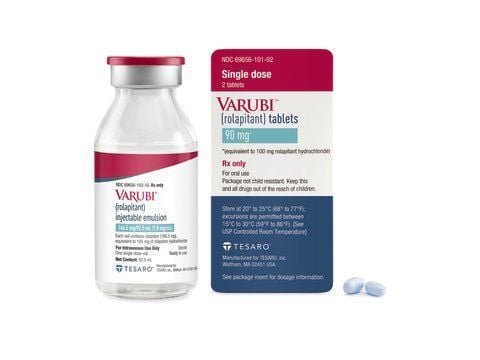This is an automatically translated article.
Nausea and vomiting are among the common side effects of chemotherapy for cancer. There have been many studies showing that ginger has a related effect in alleviating the unpleasant symptoms of this side effect.
1. Nausea during cancer chemotherapy
Nausea and vomiting are common side effects of cancer chemotherapy. If this condition is not managed and controlled well, it can lead to serious consequences such as:
The patient cannot eat and drink and make sure to meet the nutritional needs necessary for recovery after when infusing chemotherapy in cancer or to prepare for the next treatment in the regimen. In addition, prolonged vomiting has the risk of causing water and electrolyte disturbances, malnutrition, making patients exhausted, adversely affecting quality of life. Thereby causing psychological stress, even depression during cancer chemotherapy. In case patients have to take oral chemotherapy drugs, the side effects of chemotherapy such as nausea and vomiting make them unable to take the full dose of the prescribed drug, even skipping the dose on their own, affecting the results. treatment. Prolonged vomiting makes the patient impatient, unable and unwilling to continue the next course of treatment. To reduce the feeling of nausea, in addition to using common antiemetic drugs, patients can use ginger preparations to prevent and enhance the antiemetic effect of cancer chemotherapy.
2. Anti-nausea effect of ginger in cancer chemotherapy patients
When taken with common anti-nausea drugs, ginger has been associated with reducing or eliminating feelings of nausea and vomiting during and after cancer chemotherapy.
Results from two studies in adults taking ginger to treat nausea during cancer chemotherapy showed that using ginger at different doses reduced the severity of nausea. In these studies, participants started drinking ginger water three days before starting cancer chemotherapy. Ginger is taken with a prescription medication to relieve nausea and vomiting. A small number of participants reported other side effects, including heartburn, bruising, facial flushing, and rash.
In another study, taking powder from ginger root was found to be effective in reducing the severity of nausea as a side effect of chemotherapy in children and young adults aged 8 to 21 years. Ginger in this study was also used along with common anti-nausea medications.
Many prescription drugs have been shown to be effective in controlling nausea during and after cancer chemotherapy. Ginger is well tolerated when taken with most of these medications. However, ginger can interact with the anti-nausea drug Aprepitant, so ginger should not be taken if you are taking this medicine.

Gừng có một số tác dung tuyệt vời trên bệnh nhân hóa trị ung thư
3. Possible interactions when taking ginger to reduce vomiting in cancer patients
A study published in the American Society of Clinical Oncology found that patients who started taking ginger tablets a few days before chemotherapy had less nausea than patients who took only stomach medicine. However, patients should not take ginger together with stimulants such as alcohol. In terms of use, patients can use ginger powder, fresh ginger in capsule form, in addition can drink ginger juice or use ginger candy.In fact, capsules containing ginger powder are quite cheap. This is a simple way to combat nausea during cancer chemotherapy, help improve quality of life and promote adherence to the same treatment regimen of patients.
Ginger did not cause any side effects in studies in cancer chemotherapy patients. However, patients should inform their doctor about using ginger to reduce vomiting, because the active ingredient in ginger can lead to blood clotting disorders, especially when the patient is on treatment. cancer, narrowing of blood vessels, certain medical conditions, and treatment with drugs related to blood clotting. On the other hand, the American Cancer Society warns, ginger is also not recommended for people who have just undergone surgery.
Talk to your doctor about choosing ginger to relieve nausea as a side effect of cancer chemotherapy, and whether ginger can be combined with an antiemetic to enhance the effects.
Vinmec International General Hospital is a high-quality medical care address, so if there are any health problems, customers can contact the hospital to be examined by a doctor and have suitable indications.
Please dial HOTLINE for more information or register for an appointment HERE. Download MyVinmec app to make appointments faster and to manage your bookings easily.
Reference source: mayoclinic.org












